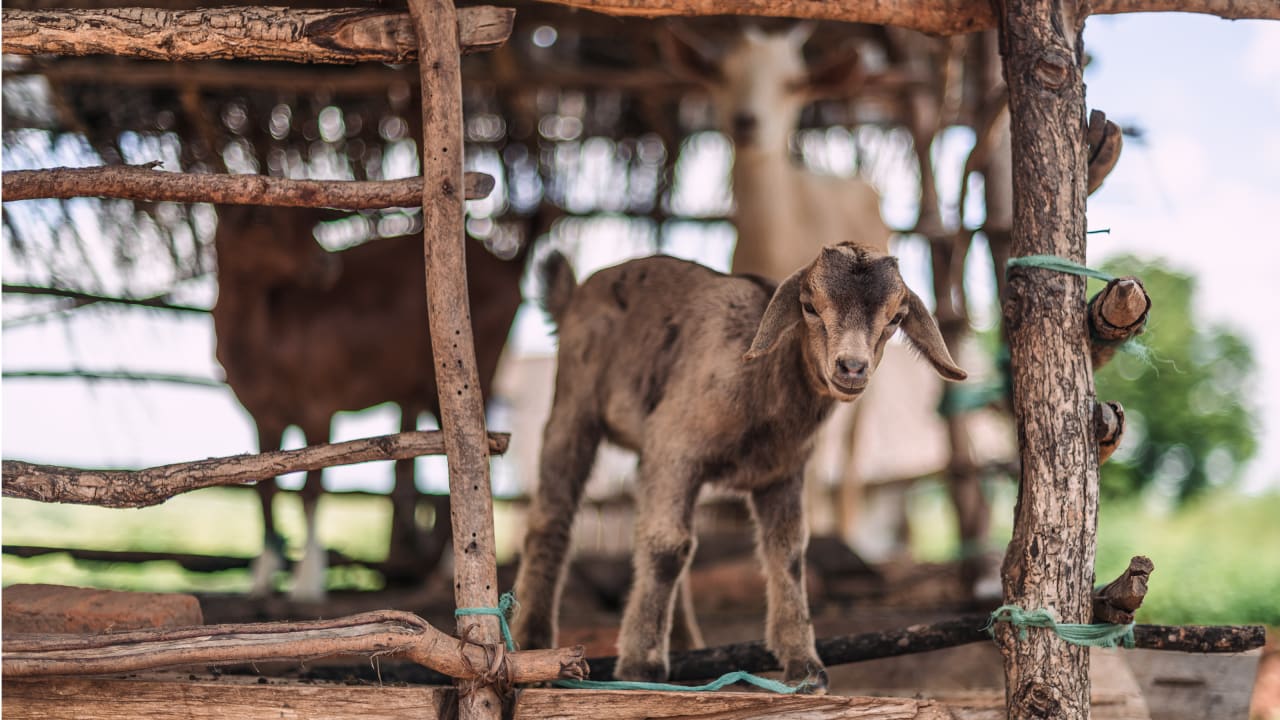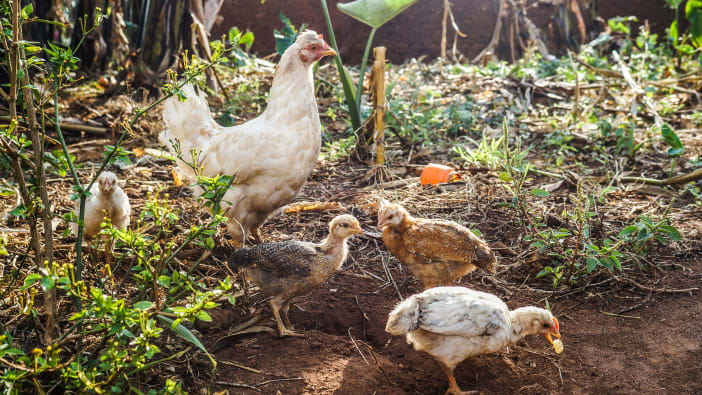by Robert Bowen and Mirjam Andriessen.
Nearly everyone has heard the term community health worker (or primary health worker). However, the term paravet is likely to be new to many. Paravets are the equivalent of community health workers but for animals instead of people! Like health workers, they may not receive formal training, but instead receive practical training within their communities.
Many rural farmers have no access to veterinary (animal healthcare) services and medicines. Animal vaccine campaigns are often not provided. Government veterinary services often have few trained staff and lack adequate transport and funding for medicines and vaccines.
Paravets give help to farmers by providing advice and access to medicines to treat sick animals. Most paravets live in the villages where they work. They should be highly motivated people, willing to improve livestock in their community. According to the size of a village and the number of livestock, a village could have one, two or even three paravets. Selection of candidates should be done by the community to ensure farmers have confidence in them. Some guidelines in the choice of paravets include…
- Age should usually be between 18 and 45. Younger people are often less stable and may not have the confidence or respect of the farmers.
- A candidate should live in or near the village rather than being a travelling trader or migrant labourer.
- Candidates need to be in good health as they will need to do a lot of walking and often treat large animals.
- They must be highly motivated.
- They should, ideally, be literate in order to follow the training, read instructions for medicines and be able to calculate correct dosages.
- They need to have time to receive training.
Paravets in Mozambique…
In Mozambique VETAID is supporting farmers in Gaza and Inhambane Provinces in three ways:
- by supporting local government livestock services
- by a restocking programme
- by the training of farmers and paravets.
Government services are at present inadequate to cover huge areas of the country. Though Government policy is that vaccination campaigns should be free, vaccines are often not available. Many farmers lost livestock during the long civil war. The paravets are supplied with a veterinary kit containing some medicines. They can sell these to farmers for a small profit which they keep themselves as a small payment for their work and any costs in transport. It is not enough to provide a salary and their motivation needs to come from the desire to support farmers in their own community.
…and Somaliland
In Somaliland communities usually select candidates who are livestock owners and who already have animal health skills. After training, the paravets’ work will include the simple treatment of wounds, vaccination and diagnosis of diseases.
Somaliland declared independence in 1991 after a devastating civil war. Most of the population are pastoralists, depending on their camels, sheep and goats for their survival. Since the civil war, government livestock support services have not been operating. Former livestock staff have sometimes formed their own private services. VETAID is providing training and support for paravets, linking them up to these private veterinary groups who can provide training and support and supply them with medicines.
The initial training of paravets takes 15 days. Teaching is based around the recognition and treatment of the commonest diseases and problems in the area. Paravets also receive training in giving injections, drenching, treating wounds and hoof trimming. Regular follow-up sessions take place every three months. So far, 15 paravets have been trained, covering three districts.
As well as the training of paravets, farmer training is also important so that farmers have confidence in the services provided by the paravets.
Robert Bowen and Mirjam Andriessen both work with VETAID – Robert in Somaliland and Mirjam in Mozambique. Mirjam can be contacted at: Gaza SPP, Xai Xai, Mozambique, Africa. Tel/fax: +258 22 22843 E-mail: [email protected]
VETAID would be pleased to hear from readers already involved with paravet training and work or seriously considering setting up such work. They do not have funding but may be able to help with training. Their address is: VETAID, Centre for Tropical Veterinary Medicine, Easter Bush, Roslin, Midlothian, EH25 9RG, UK.
Tel/fax: +44 131 445 3129
E-mail: [email protected]







